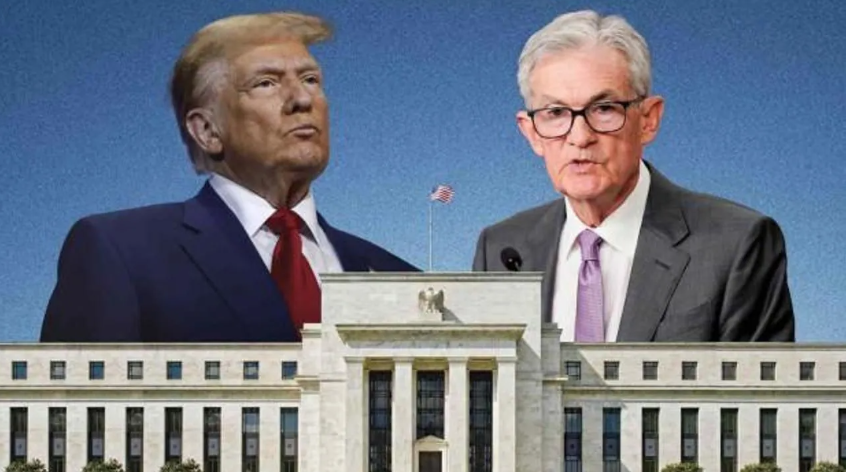President Donald Trump’s recent remarks targeting Federal Reserve Chair Jerome Powell have reignited concerns over the central bank’s independence and the potential economic ramifications of political interference in monetary policy.
Political Pressure on the Federal Reserve
In a press briefing following his meeting with Italian Prime Minister Giorgia Meloni, President Trump expressed dissatisfaction with Powell’s handling of interest rates, suggesting that Powell could be removed from his position if he doesn’t align with the administration’s economic views. Trump criticized Powell for being “too slow” in adjusting rates and accused him of “playing politics.” These statements have raised alarms about the potential erosion of the Federal Reserve’s autonomy, a cornerstone of its credibility in managing the U.S. economy.
Legal and Institutional Implications
The Federal Reserve Act stipulates that the Fed Chair can only be removed “for cause,” typically interpreted as misconduct or incapacity, not policy disagreements. Powell has affirmed his commitment to the Fed’s independence, stating that policy decisions are made solely in the interest of the American public and are not influenced by political pressures. Legal experts note that any attempt to dismiss Powell without clear cause could lead to a constitutional challenge, potentially destabilizing financial markets and undermining investor confidence.
Economic Consequences of Political Interference
The President’s push for lower interest rates comes amid his administration’s implementation of substantial tariffs, including a 10% tax on all imports and a 145% levy on Chinese goods. These trade policies have introduced volatility into the markets and contributed to inflationary pressures. Federal Reserve officials, including Powell, have expressed concerns that such tariffs could lead to higher consumer prices and complicate the central bank’s efforts to maintain price stability and support employment.
Global Economic Implications
The International Monetary Fund (IMF) and the European Central Bank (ECB) have both warned that escalating trade tensions, particularly those stemming from U.S. tariffs, could slow global economic growth. The ECB has responded by reducing its main interest rate multiple times, citing “exceptional uncertainty” and the negative economic impact of rising tariffs. These developments underscore the interconnectedness of global economies and the potential for U.S. domestic policies to have far-reaching international effects.
President Trump’s public criticism of Fed Chair Jerome Powell and the suggestion of potential dismissal over policy disagreements pose significant risks to the perceived independence of the Federal Reserve. Such political interference could undermine the central bank’s credibility, destabilize financial markets, and complicate efforts to manage inflation and support economic growth. As the situation unfolds, maintaining the Federal Reserve’s autonomy remains crucial for ensuring long-term economic stability and investor confidence
- Trump’s Houthi Statement: Peace Offering or Strategic Retreat? - May 6, 2025
- Turkey’s New Path: London or Washington? - May 6, 2025
- Opinion | The Pentagon’s Star Trim: A Bold Move or Bureaucratic Theater? - May 6, 2025








